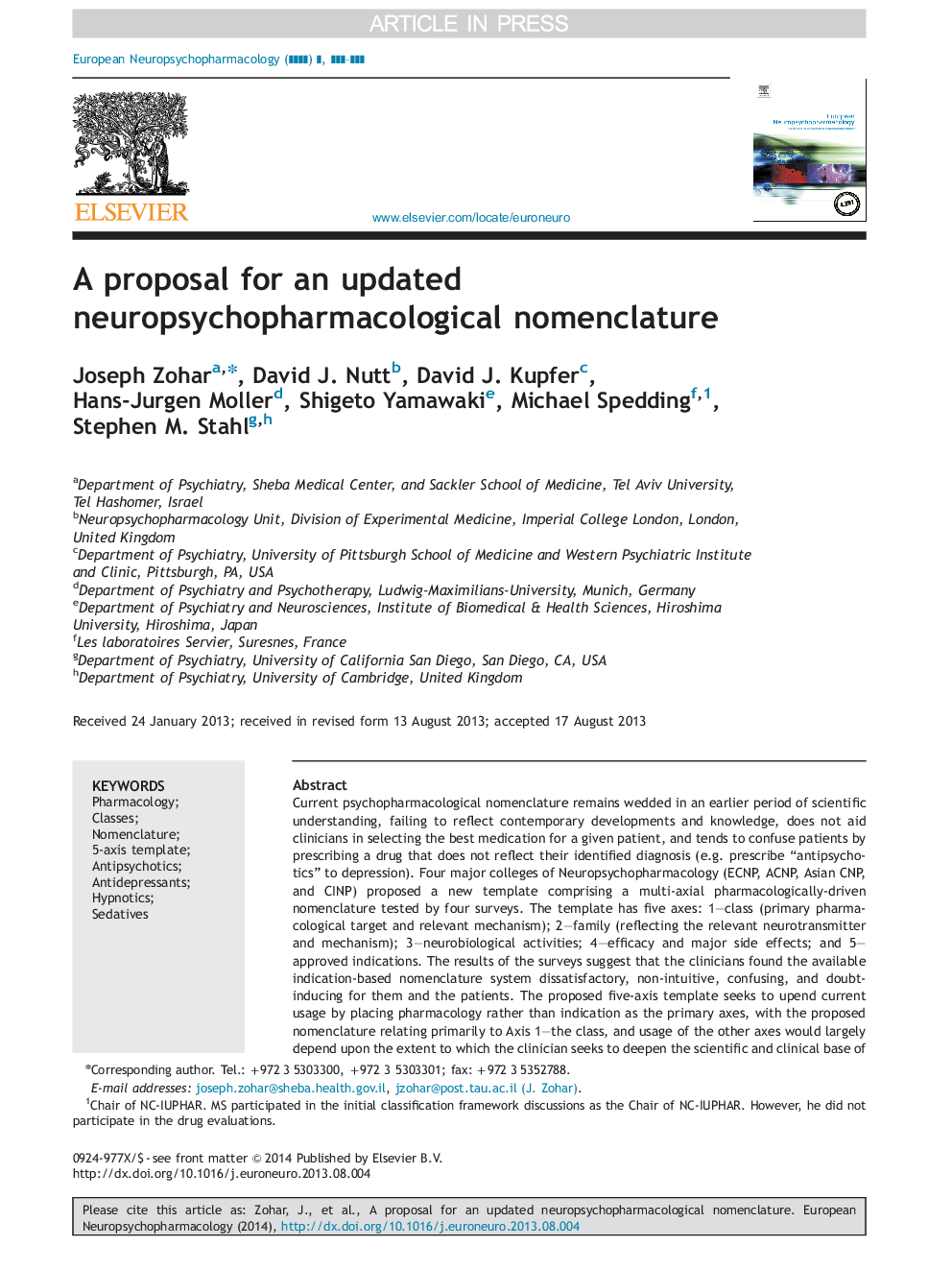| Article ID | Journal | Published Year | Pages | File Type |
|---|---|---|---|---|
| 10298917 | European Neuropsychopharmacology | 2014 | 10 Pages |
Abstract
Current psychopharmacological nomenclature remains wedded in an earlier period of scientific understanding, failing to reflect contemporary developments and knowledge, does not aid clinicians in selecting the best medication for a given patient, and tends to confuse patients by prescribing a drug that does not reflect their identified diagnosis (e.g. prescribe “antipsychotics” to depression). Four major colleges of Neuropsychopharmacology (ECNP, ACNP, Asian CNP, and CINP) proposed a new template comprising a multi-axial pharmacologically-driven nomenclature tested by four surveys. The template has five axes: 1-class (primary pharmacological target and relevant mechanism); 2-family (reflecting the relevant neurotransmitter and mechanism); 3-neurobiological activities; 4-efficacy and major side effects; and 5-approved indications. The results of the surveys suggest that the clinicians found the available indication-based nomenclature system dissatisfactory, non-intuitive, confusing, and doubt-inducing for them and the patients. The proposed five-axis template seeks to upend current usage by placing pharmacology rather than indication as the primary axes, with the proposed nomenclature relating primarily to Axis 1-the class, and usage of the other axes would largely depend upon the extent to which the clinician seeks to deepen the scientific and clinical base of his involvement. A significant proportion of the participants in the four surveys were in favour of the proposed system, a similar number wanted to consider the idea further, and only a small proportion (8.6%) were against it. The proposed five-axis pharmacology based nomenclature template is a system which might refresh and reflect the current scientific concepts of neuropsychopharmacology.
Related Topics
Life Sciences
Neuroscience
Biological Psychiatry
Authors
Joseph Zohar, David J. Nutt, David J. Kupfer, Hans-Jurgen Moller, Shigeto Yamawaki, Michael Spedding, Stephen M. Stahl,
